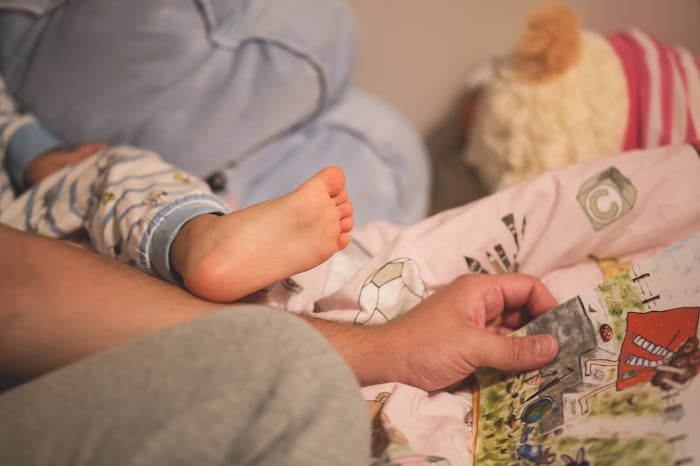Few things break a parent's heart more than trying to comfort your child through a bad dream. It feels like your duty to protect your baby from anything that scares them — be it a real or imaginary fear — and nighttime can be ripe with fear for some kids. Even more heartrending, is watching helplessly as your child has a night terror. But what are night terrors exactly? They're as scary as they sound, but luckily, they're generally not as big of a deal as the name implies.
Night terrors are more than simply a bad dream. According to Kid's Health, a night or sleep terror is an inconsolable sleep disruption that happens during a non-REM sleep phase, or during a transition between phases. Mayo Clinic noted that sleep terrors can happen in both children and adults but are more common among children up to age seven. They also will likely remember nothing about the terror in the morning.
Luckily, sleep terrors, which are more likely to occur in the first few hours after falling asleep, according to Kid's Health, aren't harmful to children's health, both physical and mental. However, the American Sleep Association stated that it's virtually impossible to rouse or comfort a person experiencing a sleep terror and that crying, screaming, and thrashing around are all normal behaviors. The same article notes that about 15 percent of children will experience a sleep terror at some point.
In an article for Parenting, Dr. Sears gave advice for preventing night terrors and how to handle them if and when they happen. Ensuring your child has a peaceful day, avoids excess caffeine (a common "culprit of biochemical sleep disturbance",) has an active day, and a calming bedtime routine are all great ways to ease your child's fears and prevent night terrors.
Although there isn't much parents can do to comfort their child in the midst of a terror, you can at least take comfort in the fact that they're generally not permanent (according to the ASA) and that when your child wakes up, they won't remember a thing.
